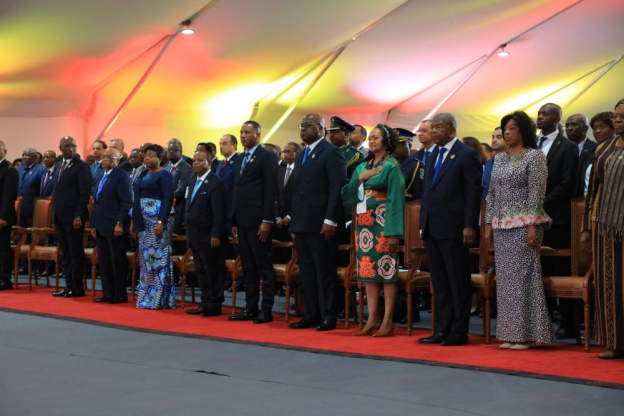
The U.S.-Africa Business Summit held in Luanda, Angola. The Summit marked a milestone event in the economic relations between the United States and the African continent. African leaders are increasingly demanding more robust partnerships based on investment rather than traditional aid-centric projects, while U.S. leaders are keen on helping American enterprises tap into the vast potential of African markets.
The summit, attended by many African Heads of State and top-level U.S. government officials, emphasized a renewed focus on commercial diplomacy. According to Senior State Department Bureau Official, Troy Fitrell, the U.S. is committed to bringing American business leaders to explore opportunities in Africa, noting the need to correct certain misperceptions about the continent.
While much of the summit’s narrative looked toward the future, trade figures provide a nuanced picture currently. According to 2024 estimates, total U.S. goods trade with Africa amounted to $71.6 billion. U.S. exports to Africa rose by 11.9%, reaching $32.1 billion—an increase of $3.4 billion. Meanwhile, U.S. imports from Africa totaled $39.5 billion in 2024, reflecting a more modest increase of 1.9% ($0.8 billion) from 2023. This resulted in a U.S. trade deficit of $7.4 billion with Africa. Although this deficit marked a 26.4% decrease from 2023, it highlighted the continued reliance on African commodity exports such as oil, precious stones, and agricultural products.
Despite trade fluctuations, foreign investment in Africa is experiencing impressive growth. In 2024, foreign direct investment (FDI) in Africa surged by 75%, reaching a record high of $97 billion—representing 6% of global FDI. European investors currently hold the largest FDI stock in Africa, followed by the United States and China.
The U.S. has demonstrated a significant commitment to investment in Africa. Since the last U.S.-Africa Leaders’ Summit, the U.S. government has invested more than $65 billion—surpassing its initial pledge of $55 billion. The U.S. International Development Finance Corporation (DFC) alone has invested over $13 billion across more than 300 projects in 36 African countries, focusing on key areas such as energy, healthcare, and infrastructure.
Another major factor shaping U.S.-Africa economic relations is the African Continental Free Trade Area (AfCFTA). As the largest free trade zone in the world by number of countries, AfCFTA aims to eliminate trade barriers and unify fragmented markets across the continent projected to reach a population of 1.7 billion by 2030. This integration presents tremendous opportunities for U.S. businesses, offering a more open and efficient market, reduced transaction costs, and enhanced economic diversification. This aligns closely with U.S. interests in securing stable and expanding markets for American goods and services.
Ethiopian President Taye Atske Selassie challenged the notion of Africa as a “new frontier,” asserting that the continent is already an important hub for business. He stressed that African countries must do more than just invite investment; they must actively create the conditions to attract it. “It is upon us to ensure that we have sufficient arable land, a dynamic working population, and proper policy frameworks in place,” he said. He also highlighted priorities such as strengthening trade connectivity and promoting sustainable investment in value addition.
Mahmoud Ali Youssouf, Chairperson of the African Union Commission (AUC), echoed this call for partnership, emphasizing the transformative potential of U.S.-Africa private sector collaboration in achieving shared prosperity. His remarks reinforced the crucial role the private sector plays in advancing Africa’s development goals.
Dr. Akinwumi A. Adesina, President of the African Development Bank (AfDB), urged “smart investors” to pay close attention to Africa. He cited compelling data, noting that 13 of the 20 fastest-growing economies in the world are in Africa. He emphasized the continent’s demographic dividend, pointing out that one in four people globally will be African. He also underscored Africa’s role in global food security, as it holds 65% of the world’s remaining uncultivated arable land.
Dr. Adesina highlighted Africa’s vast potential in the global energy transition, given its significant reserves of renewable energy, critical minerals, and rare earth elements vital for producing mobile phones, wind turbines, aerospace equipment, electric vehicles, and battery energy storage systems. He also referenced the economic value of the AfCFTA, which is estimated at $3.4 trillion. Citing a recent report by the United Nations Development Program, he noted that investments in Africa can yield internal rates of return between 15% and 20%.
The overarching theme expressed by African leaders was clear: Africa is a continent of immense opportunity, ready to engage in strong partnerships and long-term investments that can drive growth and prosperity for all involved.
BY EYUEL KIFLU
THE ETHIOPIAN HERALD THURSDAY 26 JUNE 2025




